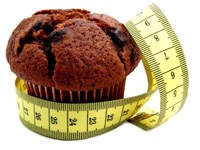The key to beating obesity and curbing the dramatic increase in Type 2 diabetes is to adopt a high-fat and protein diet and banish the popular high-carbohydrate diet, leading sports scientist Prof Tim Noakes says.
During an address at the Nelson Mandela Metropolitan University (NMMU) the highly respected Noakes said the traditional "heart-healthy" diet could be the single worst medical mistake of the 20th century, as high-carbohydrate diets were behind the sudden spike in obesity and other chronic illnesses.
"About 70% of chronic diseases are nutrition-based, yet nutritional science is completely undervalued. If we continue as we are now, we are going to need more hospitals and to train more doctors because more and more people will get sick."
Noakes, co-founder of the Sports Science Institute of South Africa, followed a high-carbohydrate and low-fat diet all his life until he was diagnosed with diabetes.
Noakes said he had discovered that consumers had been misled by the US government and agriculture industry, which had promoted the wrong foods.
He said the McGovern Report of 1977, which the US Senate adopted to build new nutritional guidelines for Americans, recommended a low-fat diet, high-carb diet.
But Noakes said this was a tool used by the US government at the time to assist industrialising and mass producing corn, to strengthen its agriculture industry.
"Since then, people have reduced their consumption of fat - including saturated fats - to reduce cholesterol, but obesity has risen in the last 30 to 40 years. Before, humans were lean and did not need to be told what not to eat."
He said there was a misconception that people were getting fatter because they were eating more and exercising less. He said obesity was not only caused by inactivity, but more because most body fat originated from carbohydrates.
"Obesity occurs in those whose muscles are insulin insensitive. The carbohydrates cause you to feel hungry and eat more, whereas you can go longer periods before feeling hungry again if you follow a high-fat diet."
He said the key to reducing obesity was to reduce the carbohydrate content of one's diet, the opposite of what dieticians had traditionally recommended. High intakes of carbohydrates lead to an over-secretion of insulin, he said.
"By 2030, about one third of Americans will have diabetes. The two most common forms of cancer, colon cancer and breast cancer, are also linked to high insulin levels." Noakes said ultra-marathon athlete Bruce Fordyce followed a high carbohydrate diet before discovering he was intolerant and gaining weight dramatically. He moved to a high-fat diet.
"Every day I get two or three e-mails from people who say they have made the change and thank me for saving their lives. I have diabetes because I picked it up too late. If your food comes in a box, throw it out. Throw away the box cereals and give your kids eggs for breakfast.
"Reduce your carb intake to 25g a day if you are diabetic. Stick to dairy, nuts and oils like flaxseed, olive and coconut oils. Stay away from sunflower oil and eat eggs," he added.
Source: Herald via I-Net Bridge











































